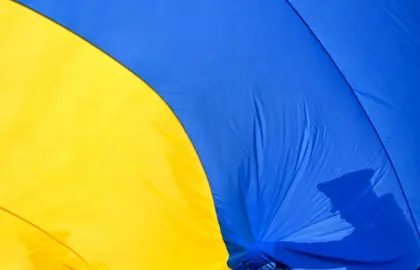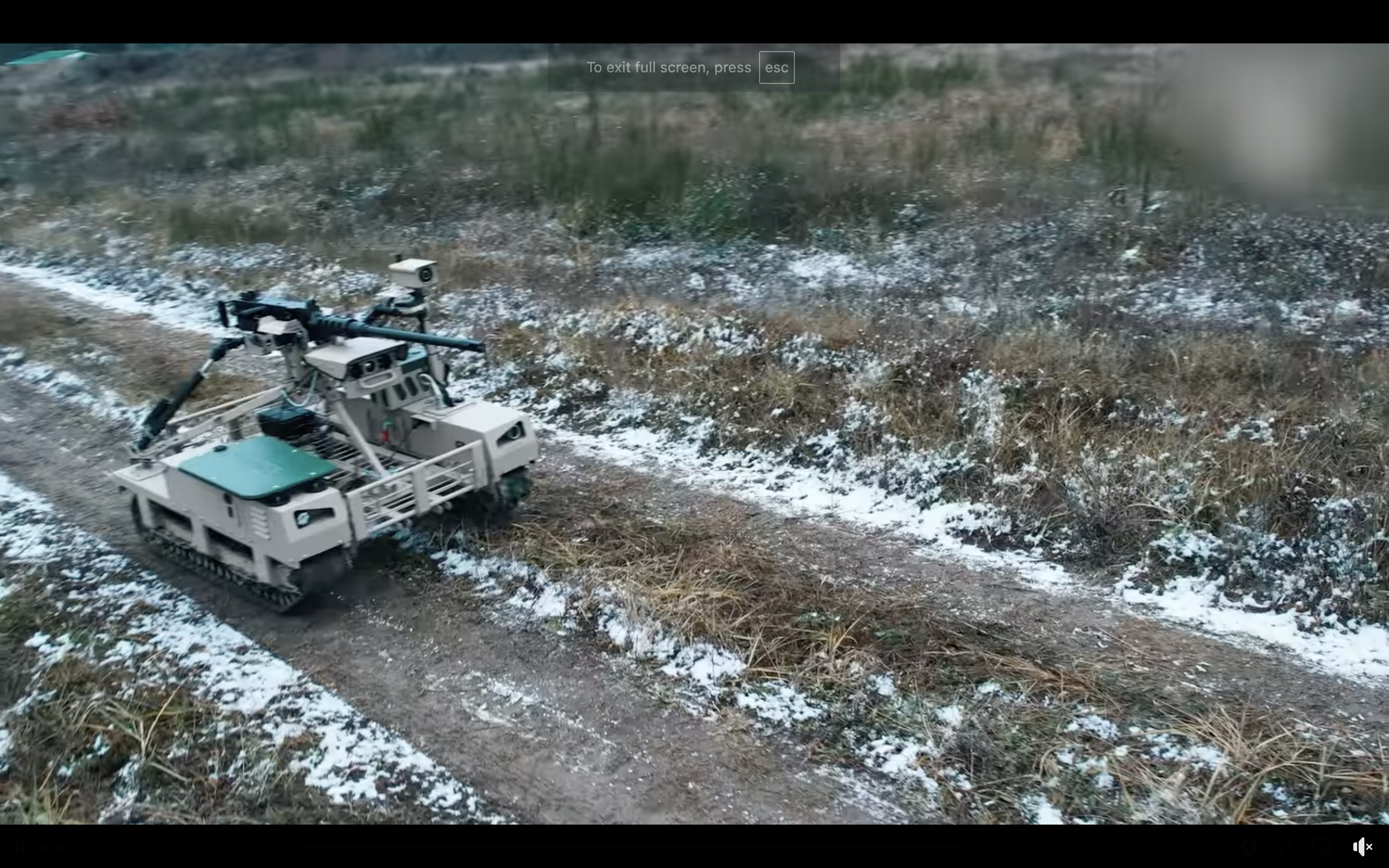Speculation about what will happen after Ukraine’s expected spring-summer offensive has been growing. A few high-profile pundits have been repeating a similar line of argument: If Ukraine doesn’t manage to take back all the territory Russia has grabbed since 2014, then the West should push Ukraine to the negotiating table with Russia before the end of the year. This would forestall a grinding war of attrition resulting in a stalemate.
In order to convince Kyiv, it is implicit that all the West needs to do is simply withhold some of the massive military aid it has been providing to Armed Forces of Ukraine.
JOIN US ON TELEGRAM
Follow our coverage of the war on the @Kyivpost_official.
One of the more elaborate arguments appeared in Foreign Affairs, a very influential publication among Washington policy makers, on April 13. Under the title “The West Needs a New Strategy in Ukraine,” Richard Hass and Charles Kupchan argue, that the West should give Ukrainians everything they feel they need to push Russia out of their territory over the spring and summer. “It is thus time for the West to stop deterring itself and start giving Ukraine the tanks, long-range missiles, and other weapons it needs to wrest back control of more of its territory in the coming months.”
In the next breath, however, the authors offer a cold-shower assessment: “Yet for all the good that greater Western military help would do, it is unlikely to change the fundamental reality that this war is headed for stalemate.” From there they suggest that the United States must come up with a cease-fire plan they could sell to Kyiv.

Ukraine Urges UN to Add Russia to ‘List of Shame’ for Systematic Sexual Violence, War Crimes
An even more pessimistic article appeared in Foreign Policy on April 18 by Stephen M. Walt, who says: “As much as we’d all like to see the swift liberation of Ukrainian territory, the under-equipped, under-trained Ukrainian forces now gearing up for a spring offensive are unlikely to make far-reaching gains against Russia’s defenses.” Ultimately, he envisions a “great power peace plan” among the US, Russia and China that smacks of Yalta or the Congress of Vienna.
There’s little point in speculating about how the offensive will play out. It’s enough to ask: How many of those same analysts had predicted the quick fall of Kyiv in the event of an all-out invasion? Certainly Kupchan has been wrong nearly every step of the way.
Suffice it to say that what is now at stake in Ukraine is nothing less than the Pax Americana that several generations of Europeans – as well as Americans, Africans and Asians – have enjoyed to the point of taking it for granted.
Where Europe would be without NATO
At the risk of belaboring the obvious, let it be stated for the record where Europe stands in relation to its own history.
For the past three-quarters of a century (basically, three generations), Western Europeans have lived through a period of unprecedented peace, accompanied by widespread economic well-being and the development of hugely successful cradle-to-grave health and social services.
The proximate causes are many: a history of colonization, ruthless exploitation of less developed populations, technological superiority, and other factors. Yet the result is what we, our parents, and our children experience firsthand – namely, peace and prosperity.
From a historical perspective, this extended period of calm on the continent is the exception rather than the rule. Since the advent of written history, and probably even before, Europeans have been continually tearing each other to pieces. Not perhaps since the Roman Empire established its Pax Romana has there been such a prolonged period of peace in Europe.
It would be absurd to think this current peace would have been possible without the establishment of the NATO alliance and the presence of US forces on the ground. The Soviet Union in its heyday had an openly expansionist program for its communist system, and many countries within the American sphere of influence – most notably Italy – had thriving communist parties beholden to Moscow. Indeed, in the wake of World War II, Washington went to great efforts to combat this threat covertly with its Operation Gladio.
The one time since World War II that serious violence erupted in Europe, during the Yugoslav Wars of the 1990s, it took overt NATO action to stanch the blood. In 1995, after the Srebrenica massacre of more than 8,000 Bosnian Muslims at the hands of Bosnian Serbs, NATO unleashed Operation Deliberate Force, bombing over 300 Bosnian Serb targets with 400 aircraft over the course of a month to bring the Serbs to the negotiating table. The Dayton Peace Agreement was signed within four months.
Since the fall of the Soviet Union, no less than nine European countries previously in Moscow’s sphere of influence are now enjoying the peace, security and prosperity that had once been limited to Western Europe. These countries were not coerced by some nefarious Washingtonian cabal, as certain critics – John Mearsheimer and Noam Chomsky just to name the most outspoken – insinuate. Rather, those countries practically begged Washington for the kind of security guarantee that only NATO could offer – because they were terrified of Russian revanchism.
For those who minimized Moscow’s revanchist inclinations back in the 1990s and 2000s – me included – there is now no excuse. Vladimir Putin has shown in words and deeds that he intends to restore Russia’s “greatness” – which explicitly entails controlling countries where Russians and/or Russian-speakers live.
What’s wrong with negotiation?
There is nothing wrong with negotiation. Obviously, the war will end through some sort of negotiated agreement. In fact, from the regular prisoner exchanges taking place, it’s clear that the Russians and Ukrainians are already communicating on some significant level.
What analysts like Hass, Kupchan and Walt seem to be advocating is a very pragmatic (if not cynical) compromise. It involves pushing Ukraine – against its will – to accept territorial concessions so that the rest of the world can get on with the business we’ve all become used to thanks primarily to the Pax Americana.
Such willingness reflects a very dangerous rationalization of what is effectively an attitude of Chamberlinian realpolitik, if not downright cravenness.
When in 2014 and 2015 US President Barack Obama balked at giving Ukrainians lethal weapons, and German Chancellor Angela Merkel and French President François Holland struggled to accommodate Putin without throwing Kyiv under the bus at the Minsk negotiations, one could still plead uncertainty as to Putin’s ultimate intentions.
Now there’s no excuse. He has explicitly stated and blatantly demonstrated that Ukraine must cease to exist as a sovereign nation. Moreover, after Bucha, Mariupol and Izyum, any attempt to accommodate Russia for the sake of some perceived “business as usual” would amount to complicity.
Given the West’s overwhelming superiority in military capability, combined with Ukraine’s will to keep fighting in order to stave off annihilation, there is no noble alternative to helping Ukraine militarily – helping robustly until Putin is defeated. And the definition of defeat is simple: pushing Moscow’s forces out of Ukrainian territory as defined by the internationally recognized borders of 1992 (which Russia signed off on with the 1994 Budapest Memorandum).
Anything less will compromise beyond repair the peace that the US has helped establish and led the way in preserving. Absent a firm commitment to Putin’s defeat, Europe will sooner rather than later revert to its historical default mode: continual internecine fighting. And Moscow, poised to swoop in, will have achieved its strategic goal.
It warrants constant repetition: What’s at stake right now is the very rules-based order that rose from the ashes of World War II.
Today Ukraine would also like to benefit from the Pax Americana. And after having shed so much blood – Ukrainians will certainly not take it for granted.
You can also highlight the text and press Ctrl + Enter






